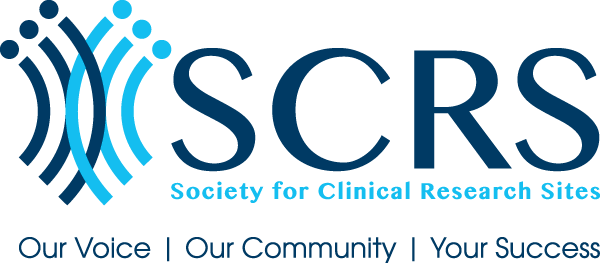
The Society of Clinical Research Sites (SCRS) is a global organization dedicated to representing and advocating for the interests of clinical research sites. Their mission is to drive site sustainability and improve the quality of clinical trials by providing their members with the resources and support they need to succeed. They strive to be the voice of the site community and work closely with industry stakeholders to shape the future of clinical research.
Joining SCRS is free for Duke Research Community Members.
To create your free membership:
- Go to: https://myscrs.org/
- Select Member Login from the upper right-hand corner
- Use your duke.edu email address to join the SCRS community
Membership includes access to Webinars, Newsletters, Site Management Modules, and Virtual Trial Capability Training.
Additionally, the 12 online modules listed below have been mapped to WE-R competencies.
To see how the modules are mapped to WE-R competencies, go to the WE-R Competency Training page.
Click here to access the Society for Clinical Research Sites Online Training
Adverse Events and Safety
Explains and defines an Adverse Event. Describes the Investigator’s role and responsibilities regarding Subject Safety and reporting requirements for Serious Adverse Events.
Clinical Practice vs Clinical Research
An overview of the differences between the activities which occur when managing patients during routine Clinical Practice versus the activities when you are managing subjects as part of a Clinical Research Study.
Clinical Research Overview:
Introduces and describes the phases of a Clinical Research Study and the various study designs.
Conducting a Study:
Explains the three stages of study conduct phases including the subject enrollment/recruitment period, the ongoing maintenance, and the subject exit/completion phase including the tasks and activities associated with these stages.
Delegation and Training
An overview of study task delegation and the importance of providing/documents study training for site staff.
Essential Documents for a Clinical Study
Describes the requirements for Clinical Study essential documents. Describes the type of essential documents collected for a Clinical Study during the different study phases.
Investigational Products
Overview of the basics of Investigational Product management and use during a clinical trial. Topics include inventory and temperature control and recommendations for source documentation.
IRB/IEC Responsibilities and Informed Consent
Overview of the purpose and activities of the IRB/IEC and the Investigator’s responsibilities in accordance with ICH-GCP. Describes the process of informed consent and the responsibilities of the Investigator when obtaining informed consent.
Monitoring and Auditing
Describes the routine monitoring and auditing activities that occur during a clinical study. This topic includes information on the purpose, what to expect, and tips to prepare for these Sponsor activities.
Source Documentation
A review of the terms source data and source documents. Describes the key attributes of source documents, the intent of ALCOA and CCEA and describes the appropriate processes for creating, maintaining and storing source documents.